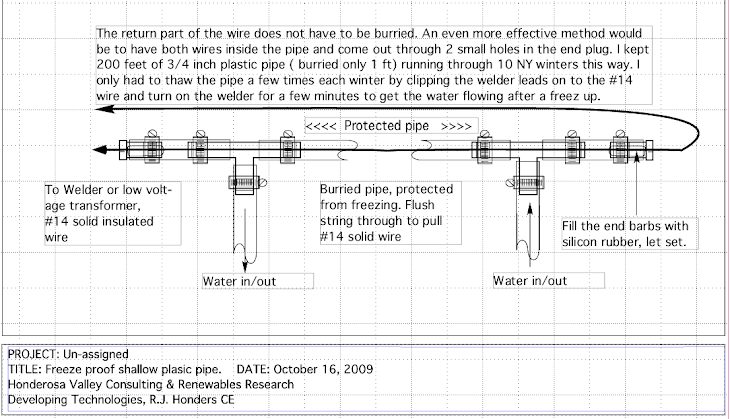There are a lot of interesting laws being considered to boost investment and viability of renewable energy sources. Net metering is just one, then there are feed-in tariffs and virtual net metering also called remote net metering or aggregate net metering.
In situations where multiple investors ( a group of neighbors ?) want to share the output of a renewable energy source, and perhaps these investors are remotely located from the source, virtual net metering will allow the renewable energy produced and metered at the source to be credited to any other investor meters out there on the grid.
Feed-in tariffs insure that renewable energy sources receive the same or higher price for their energy as fossil fueled (and subsidized) sources. Seems only fair, but currently in NY, the utilities are allowed to pay less for clean renewable energy, or only what is called the 'avoided cost', somewhere around 4 cents / KWhr while charging a retail of 10 to 16 cents / KWhr. A feed-in tariff would set ( and stabilize) the price somewhere in between so that investors can be certain of their return on investment and not have to gamble that the price of renewable energy is set by those that have a vested interest in burning fossil fuels.
These laws are slowly being passed piecemeal state by state. Eventually I look forward to progressive national legislation on this front. There is still lots of resistance from vested interests, but they are slowly figuring out that this kind of legislation does not hurt too many and helps boost renewable energy generation and national energy independence.
In situations where multiple investors ( a group of neighbors ?) want to share the output of a renewable energy source, and perhaps these investors are remotely located from the source, virtual net metering will allow the renewable energy produced and metered at the source to be credited to any other investor meters out there on the grid.
Feed-in tariffs insure that renewable energy sources receive the same or higher price for their energy as fossil fueled (and subsidized) sources. Seems only fair, but currently in NY, the utilities are allowed to pay less for clean renewable energy, or only what is called the 'avoided cost', somewhere around 4 cents / KWhr while charging a retail of 10 to 16 cents / KWhr. A feed-in tariff would set ( and stabilize) the price somewhere in between so that investors can be certain of their return on investment and not have to gamble that the price of renewable energy is set by those that have a vested interest in burning fossil fuels.
These laws are slowly being passed piecemeal state by state. Eventually I look forward to progressive national legislation on this front. There is still lots of resistance from vested interests, but they are slowly figuring out that this kind of legislation does not hurt too many and helps boost renewable energy generation and national energy independence.








